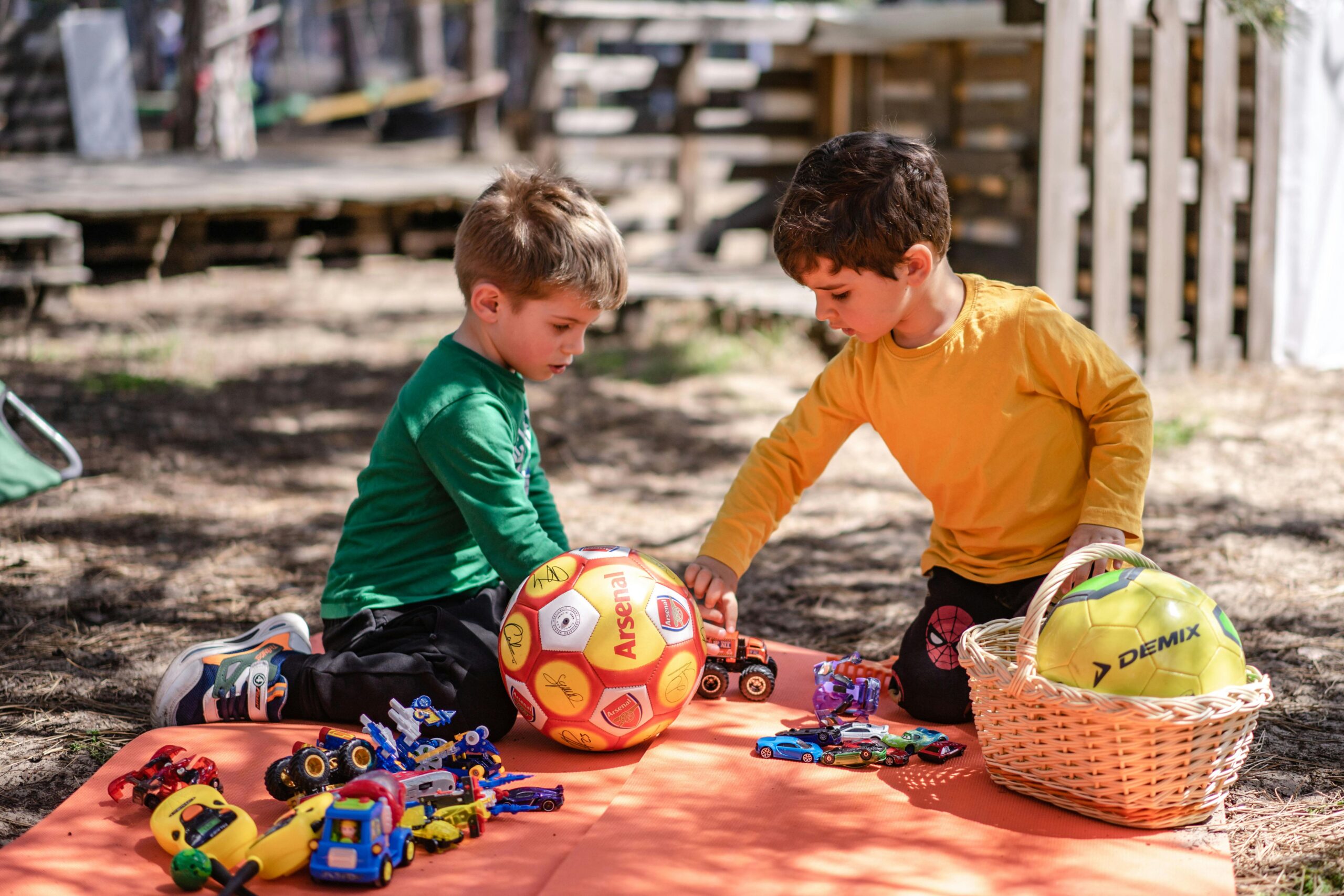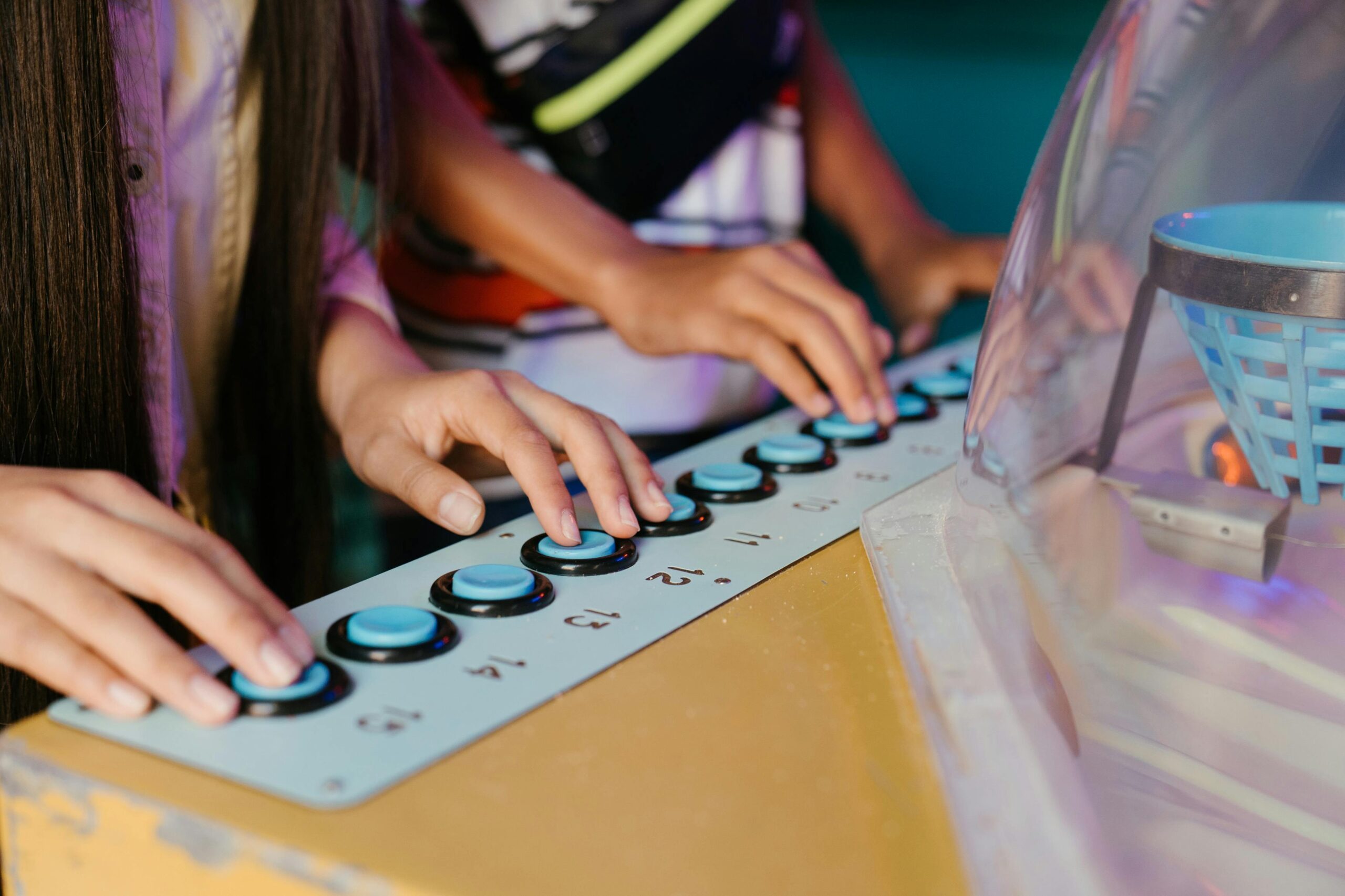Play is often dismissed as just a way for children to pass the time, but in reality, it is one of the most critical aspects of a child’s growth and development. From infancy to adolescence, play helps children build essential life skills, develop their imagination, and gain emotional resilience. Whether it’s a simple game of peek-a-boo, building blocks, or an elaborate role-playing adventure, each form of play contributes to different aspects of a child’s development.
In this blog post, we’ll explore the importance of play in child development, its different types, and how parents can encourage it for well-rounded growth.
Why is Play Important for Children?
1. Cognitive Development
Play stimulates a child’s brain, helping them build problem-solving skills, memory, and creativity. Activities like puzzles, building blocks, and board games encourage critical thinking, while pretend play fosters imagination.
Through play, children learn cause-and-effect relationships. For instance, when a child stacks blocks and they topple over, they understand balance and gravity. Similarly, when they engage in pretend play—acting as a doctor, teacher, or astronaut—they expand their knowledge of the world.
2. Physical Development
Physical play, such as running, jumping, climbing, or riding a bicycle, strengthens motor skills, coordination, and overall fitness. Fine motor skills develop when children engage in activities like drawing, threading beads, or playing with small objects.
Outdoor play is particularly beneficial as it promotes physical exercise, exposure to fresh air, and social interactions with peers. In today’s digital age, where screen time often replaces outdoor activities, encouraging physical play is more important than ever.
3. Social and Emotional Development
Play teaches children how to interact with others, share, negotiate, and resolve conflicts. When kids engage in group play—whether in the playground or during a board game—they learn teamwork, patience, and communication skills.
Moreover, play helps children process emotions. A child acting out a difficult situation, such as a visit to the doctor or a disagreement with a friend, through role-play is finding a way to understand and cope with their emotions. Play also fosters empathy, as children put themselves in different roles and perspectives.
4. Language and Communication Skills
Through play, children learn new words, sentence structures, and expressions. Whether it’s through storytelling, singing, or make-believe scenarios, play enhances language development.
When children engage in conversations during play, they practice verbal and non-verbal communication. They learn how to express their thoughts clearly, listen to others, and respond appropriately—skills that will benefit them throughout life.
5. Creativity and Imagination
Play fuels a child’s creativity. Give a child an empty box, and they might turn it into a spaceship, a house, or a treasure chest. Pretend play encourages them to think beyond reality and create their own worlds.
Creativity developed through play is not just about arts and crafts; it extends to problem-solving, innovation, and the ability to think outside the box—qualities essential for success in adulthood.
Types of Play and Their Benefits
1. Free Play vs. Structured Play
- Free Play: Unstructured, spontaneous play led by the child, such as playing with dolls, running around in a park, or drawing. This type of play fosters independence, decision-making, and self-expression.
- Structured Play: Activities with rules or guidance, such as board games, sports, or organized group activities. This helps children learn discipline, patience, and how to follow instructions.
Both types of play are essential for a child’s balanced development.
2. Physical Play
- Includes running, jumping, climbing, dancing, and sports.
- Improves strength, coordination, balance, and cardiovascular health.
- Encourages healthy lifestyle habits.
3. Pretend Play (Imaginative Play or Role Play)
- Includes playing house, pretending to be superheroes, or acting out real-life situations.
- Boosts creativity, problem-solving skills, and emotional intelligence.
- Helps children process and understand real-world events.
4. Sensory Play
- Includes playing with sand, water, clay, or slime.
- Enhances fine motor skills, hand-eye coordination, and sensory exploration.
- Helps in cognitive growth and concentration.
5. Constructive Play
- Includes building with blocks, LEGO, or assembling puzzles.
- Develops spatial awareness, logical thinking, and motor skills.
- Encourages patience and perseverance.
6. Social Play
- Includes group games, cooperative board games, and team activities.
- Develops communication, cooperation, and social interaction skills.
- Teaches sharing, empathy, and conflict resolution.
7. Digital Play (in Moderation)
- Includes educational apps, video games, and coding games.
- Enhances technological skills, problem-solving, and hand-eye coordination.
- Should be balanced with physical and imaginative play to avoid excessive screen time.
How Parents Can Encourage Play
- Create a Play-Friendly Environment
- Provide a variety of toys and materials that encourage creativity, such as building blocks, art supplies, and dress-up costumes.
- Ensure there is enough space for both indoor and outdoor play.
- Limit Screen Time
- Encourage children to engage in hands-on activities instead of excessive TV, tablet, or smartphone use.
- Set a healthy balance between digital play and physical, imaginative play.
- Join in the Play
- Playing with children strengthens the parent-child bond.
- Engage in board games, storytelling, or outdoor activities together.
- Encourage Outdoor Play
- Take children to parks, playgrounds, or nature trails.
- Organize playdates to promote social play.
- Allow for Unstructured Playtime
- Give children time to play freely without interference or schedules.
- Avoid overloading them with structured activities that leave no room for spontaneous play.
- Introduce Age-Appropriate Toys and Games
- Choose toys that match their developmental stage and encourage learning.
- Rotate toys regularly to maintain interest.
- Promote Play-Based Learning
- Use play to teach concepts like numbers, letters, and problem-solving.
- Encourage activities that blend learning with fun, such as storytelling and science experiments.
Conclusion
Play is not just a fun activity—it is essential for a child’s overall development. It enhances cognitive abilities, physical health, social skills, emotional well-being, and creativity. As parents, encouraging and facilitating different forms of play will help children develop into well-rounded individuals.
So, the next time you see your child engaged in playful activities, know that they are not just having fun—they are learning, growing, and preparing for the future. Let them play, explore, and imagine, because play is the foundation of childhood!



